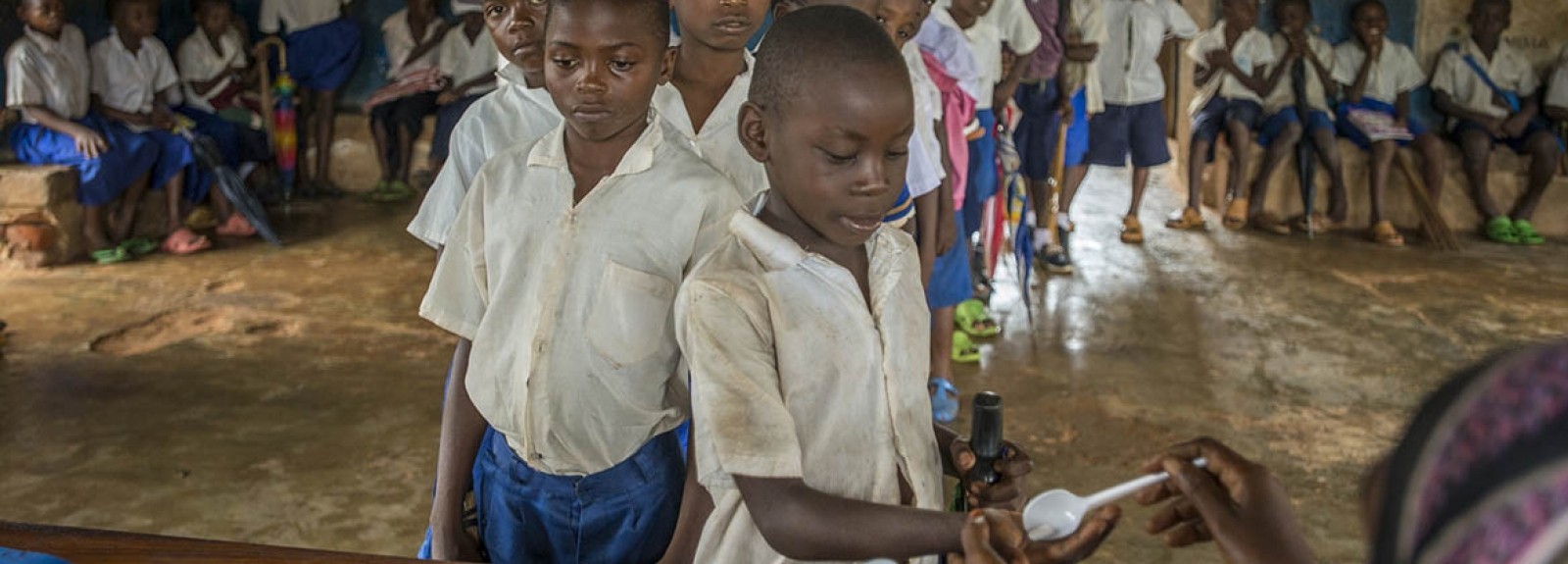W
e are reaching more people suffering the effects of neglected tropical diseases—and helping to improve their quality of life—than ever before.
Uniting to Combat Neglected Tropical Diseases recently released “Reaching the Unreached,” the fourth progress report since the launch of the London Declaration on NTDs in January 2012. The report shows that we’re closer to achieving a better quality of life for people at risk of and affected by NTDs. Since the launch of the declaration, the overall number of people in need of NTD treatment has decreased by 230 million, a higher percentage of people than ever before are being reached with the services they need and more countries are achieving their control and elimination goals, according to the organization.
IMA World Health has been working to address NTDs since the 1990s in Asia, Africa and the Caribbean. Our projects primarily target five of the NTDs that cause the greatest morbidity and mortality: lymphatic filariasis, onchocerciasis, trachoma, schistosomiasis and soil-transmitted helminthes. IMA also recently began to address visceral leishmaniasis, commonly known as kala-azar, in endemic areas within South Sudan.
IMA is a recognized leader in the control and elimination of NTDs. IMA uses a combination of evidenced-based strategies to map and scale-up NTD control in partnership with governments and civil society partners. IMA is particularly proud of its work advancing the prevention and treatment of NTDs, particularly in hard-to-reach rural areas that suffer disproportionately and lack services.
As the lead implementing partner of the ENVISION Project, IMA treats nearly 5 million people annually for soil-transmitted helminthes in Haiti.

Related
- Haiti’s journey to elimination of lymphatic filariasis: It’s almost over
- Morbidity Management: Another dimension in the fight against NTDs in Tanzania
- Haiti winning in NTD elimination
- Success Story: Restoring men’s hope through hydrocelectomy in southern Tanzania
- Neglected by not forgotten: treating tropical diseases changes lives
Similarly in Tanzania, IMA works with the country’s Ministry of Health and Social Welfare to leverage schools and communities as NTD control platforms, and has established a corps of more than 46,000 community volunteers to provide mass drug administrations regularly. In the east African country, IMA treated more than 18 million people for at least one NTD between June 2015 and May 2016.
With support from the U.K.’s Department for International Development, IMA helps trachoma sufferers by providing them with surgical services and other case management support to help relieve pain, enable them to return to work and prevent vision loss. IMA leads implementation in Mtwara region. Since June 2015, IMA teams have performed trachomatous trichiasis surgeries for 1,358 patients and eyelid epilations for 126 patients.
With support of partners Presbyterian Church (USA) and Izumi Foundation, 480 men received hydrocele surgery since June 2015, and IMA will carry out another 140 surgeries before June 30, 2016.
Great progress has been made, and we are committed to building on these efforts. By continuing to invest in research and development, mass drug administration campaigns and efforts to raise awareness on how to prevent NTDs, we can eliminate diseases that trap over a billion people in poverty by 2020.


